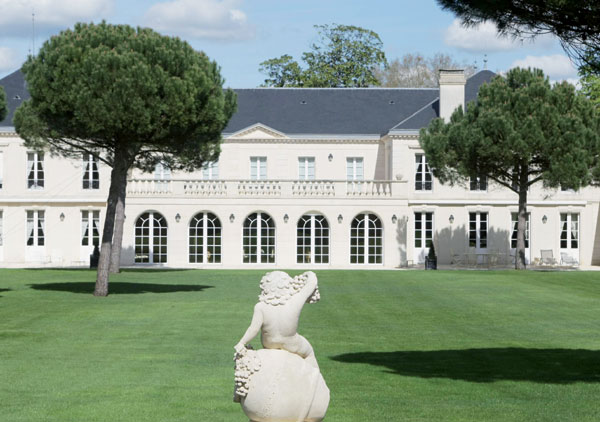Property buyers cast net across continental Europe
|
A Chinese businessman, Shen Dongjun, has brought Chateau Laulan Ducos in southwestern France. In the past two years, Chinese investors have bought about 30 lower-ranked properties in Bordeaux. Provided to China Daily |
For Chinese looking to buy property overseas, Britain and the United States are the shop windows they have always looked into first - but prospective buyers are now increasingly casting their eyes in other directions.
Real estate agents say that China's rich are snapping up a more diverse range of prime, high-end properties across Europe.
Cici Dong, head of the Asia-Pacific desk at London-listed real estate agent Savills, said European inquiries from Chinese buyers have grown, including French vineyards, houses in medieval villages in Italy, and luxury beach houses in Spain, spurred by the desire to diversify their investment portfolios.
"The bulk of our buyers are still British and Russian, but there has been a real surge of interest by Chinese investors, and they have a lot of money at their disposal.
"But unlike the others, who are looking for holiday homes, Chinese buyers are more likely to be pursuing social status or doing it for pleasure."
Over the past two years, Chinese investors have bought about 30 properties in the world's top wine-producing area of Bordeaux, for instance, and this year China became the French region's biggest export market in terms of volume, according to China Wine News, an industry newspaper.
Herve Olivier, regional director of SAFER, a French government agency that oversees rural land development, said another 10 Bordeaux chateaux are likely to be owned by Chinese by the end of this year, if bureaucratic obstacles can be overcome.
Dong said there is also great interest in large private villas with country views, and of those with views of lakes or the sea.
Luca Arancio, owner of the British real estate agency Word & Buyer Ltd, who was born in Italy, said at a recent luxury overseas property exhibition in Beijing that he had received many inquiries for Italian medieval palazzos and lakeside villas.
Houses in ski resorts, apartments and historic estates in Milan, Rome and Florence are also favored spots, Arancio said.
He added that Chinese buyers are low-profile, and are "looking to immerse themselves in the Italian culture and adopt the local relaxed mindset".
Customers are primarily private entrepreneurs with different business interests, including real estate, manufacturing and tourism, and their tastes in Italian luxury spread to perfumes, dresses, bags and cars, Arancio said.
"Italy was already a popular holiday destination for the new economic elite in China, so it's natural they now want to own a home in Italy."
Only recently into the Chinese market, Arancio is doing his business through a partnership with SouFun.com, China's largest real estate online portal.
His service extends to arranging for customers to sit down and have lunch with designers or engineers with the Italian luxury car maker Lamborghini, and if they want a car to be picked up and delivered to them, he can arrange that.
The allure to Chinese property buyers of countries such as France and Italy, with their sunshine, great food and scenic beauty, is obvious, but cold economic logic is also at play.
The price of European property is estimated to have dropped by around 5 percent over the past couple of years, and that coupled with a weak euro makes them particularly attractive.
A 19th-century property in a panoramic position in the hills that rise above Lake Garda between Venice and Milan, in northern Italy, can cost from about 800,000 euros ($1 million) to 3 million euros.
Laurent Deleaval, CEO of Terimmo, a real estate agent that specializes in European properties, said: "Prices for large villas with a private garden, a swimming pool and a tennis court certainly cost much more than small houses, but the prices have hardly stormed ahead; they have remained stable or risen gently."
For Chinese investors who are involved in manufacturing, buying a house in Italy can also be about more than having a second home, property agents said.
Again, cold economic realities come into play as owning property in Italy may make it easier for them to legally use the highly valued moniker "Made in Italy".
However, language barriers and fears of culture shock in Europe still scare many Chinese away.
Barrier Javier Julian, regional manager for China of VAPF, a Spanish real estate agency, said many Chinese who have shown initial interest in buying beach houses in his country have pulled back citing language and cultural differences.
"Spain is not an English-speaking country and it's not an immigrant country either. This is limiting the number of potential Chinese buyers."
China's foreign exchange curbs are also a problem.
Chinese people are legally restricted to transferring no more than $50,000 out of the country a year, not even enough for a very modest deposit.
Nevertheless, rich Chinese are somehow still managing to get their hands on some of the most expensive properties in Europe.

























